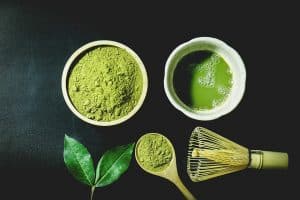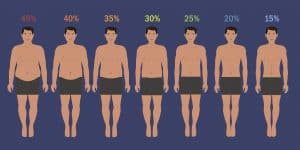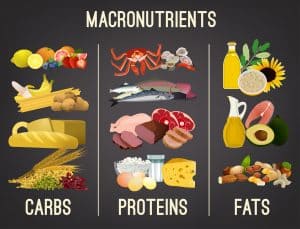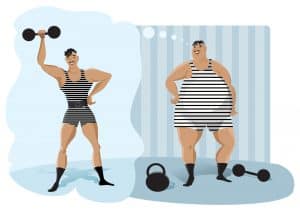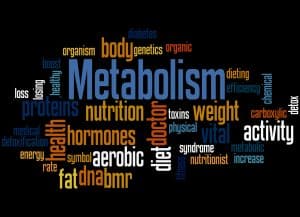I recently met with a friend of mine that I have not seen in more than a year.
He used to be muscular but chubby, slightly overweight. I remember he was struggling to lose body fat because he had a big appetite and liked to overeat.
When he approached me I could not recognize him. He is thin now. He literally melted. Lost a lot of weight. Muscle as well.
I asked him what happened? Did you stop lifting? “No, I still lift” he answered. “I was on a keto diet for some time,” he said with a regretting voice tune, “ I think I made a mistake. I am now trying to reverse it and regain back the muscle”.
What Is A Keto Diet?
Ketogenic diet is one in which 70 – 90% of the daily caloric intake comes from fats. For example, in a 2000 calorie diet that would mean about 170 grams of fats, 75 grams of protein, 45 grams of carbohydrates.
Yes! That’s less than 50 grams of carbs a day.
This is not to be confused with a low-carb diet in which carbohydrates account for 20 – 35 % of your caloric intake.
How Does the Keto Diet Work?
When you limit your carbohydrate intake to very low levels, glucose and muscle glycogen become very low, and your energy levels plummet. This happens, for example, during fasting, between meals, or prolonged training sessions. In this case, the liver works to release the stored body fatty acids to the blood in the form of ketone bodies.
The ketone bodies are converted into acetyl CoA and enter a series of chemical reactions called citric acid cycle, which results in oxidation of acetyl CoA to release energy.
The released ketones in the bloodstream are used as the primary energy source instead of glucose. This is called the state of ketosis and takes about 1-3 days for your body to continually release ketones.
Keto is a great diet to follow if you want to lose weight and lose it fast! But is it a good idea if you want to put on lean muscle mass?
Can You Build Muscle Mass On A Ketogenic Diet?
The short answer is unlikely.
To understand why we will need to discuss how carbohydrates are affecting muscle hypertrophy (or simply muscle building).
Carbohydrates are broken down into simple sugar, called glucose. The bloodstream can carry about 5 grams of glucose at any given time. The rest is stored in the liver and the muscle tissues as glycogen.
Glucose and glycogen are critical for muscle building. They affect the muscle at three different levels:
1
Impact of Keto Diet On Muscle Tissues
Muscle tissues themselves are made of glycogen granules. These are the gel-like fluid that fills in between muscle fibers. Although it is true that up to 90% of the muscle tissues are Myofibril (which is made of amino acids), if you attempted to increase your protein intake, however, it will interfere with ketogenesis. Protein will likely decrease your ketone levels in the blood.
While it is possible for fats to turn into glucose in a process called gluconeogenesis and occurs in the liver, the process takes a long path and time. Fats are first broken down into glycerol molecules, then through a series of reactions, glycerol is turned into glucose at low amounts. Moreover, this glucose is used mainly for energy and not for muscle storage as glycogen.
2
Impact of Keto Diet On Hormone Levels
1. Insulin: when you consume carbohydrates and the digestive system breaks it into glucose, the pancreas gland releases a hormone called insulin. Insulin is responsible for delivering glucose to the bloodstream for energy. It is also responsible for storing the extra glucose as glycogen in the muscle.
Furthermore, insulin greatly helps amino acids to repair the torn muscle tissues from training. Thus, insulin is an anabolic hormone that helps not only in muscle building, but also fast recovery. Limiting your carbohydrates to low levels during the keto diet will greatly affect your insulin levels.
2. Testosterone: is another anabolic hormone for muscle building. It stimulates anabolic receptors in the muscles to produce and synthesize protein.
Keto and low-carb diets were shown to reduce the level of free testosterone in the blood.
One study in the Epilepsy & Behavior in 2005 was conducted on female rats, showed that low-carb and keto diets lower the steroid hormones, such as testosterone and progesterone, in the blood.
Another study showed that in low-carb diets testosterone levels were significantly reduced and the cortisol (stress hormone) levels were elevated in highly trained athletes.
3. IGF-1: is the muscle growth hormone. A study showed that IGF-1 levels were reduced during fasting and cutting carbohydrates.
However, you don’t necessarily have to fast. The ketogenic diet can have a similar effect.
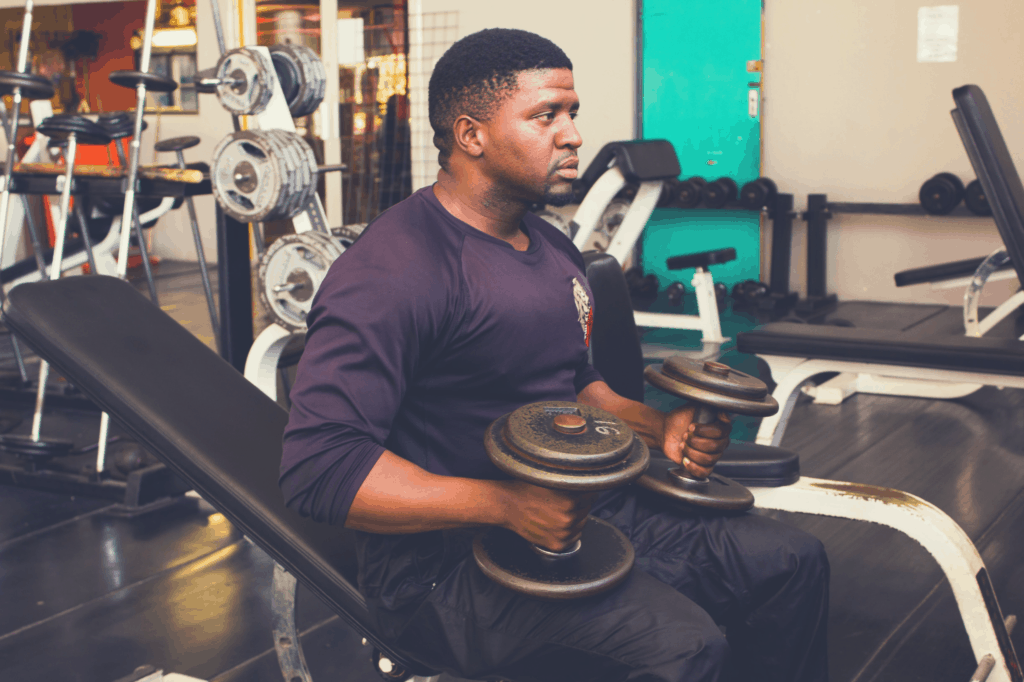
3
Impact of Keto Diet On Training And Recovery.
In order to increase your muscle mass, you have to train with high volume and frequency. Eating adequate amounts of carbohydrates ensures a fast supply of glucose to the body for energy, endurance, and strength.
During ketosis, the ketones will serve as the major energy source. However, ketones are, by nature, used for primary organ functions. The body does not prioritize spending all this ketone energy on high volume weight training.
In addition, weight training damages muscle tissues. You need to replenish those tissues by eating enough protein. Keto diet restricts protein consumption by design and increasing the protein will likely reduce the ketone bodies. You will feel sore and your recovery will take a big hit.
In the long run, you will end up not recovering and replacing the damaged muscle tissues at the desired rate. You will lose muscle!
Bottom Line
It is very unlikely you will build muscle mass on a keto diet. Yes, it is a great diet to follow if you want to lose weight for the short term only. But to gain muscle you have to incorporate a sufficient amount of carbohydrates and protein in your diet.
Carbohydrates will enhance your anabolic hormone secretion that will help build muscle. These hormones include insulin, testosterone, and IGF-1.
Moreover, muscle tissues are made of glycogen, which is stored glucose that comes from carbohydrates. Glycogen helps the absorption of water and nutrients in the muscle cells and accelerates amino acid build up in the tissues.
Finally, carbohydrates will enhance your training volume which is necessary to build muscle. They, along with protein, reduce the recovery time which will help you increase the training frequency; another important muscle building factor.



